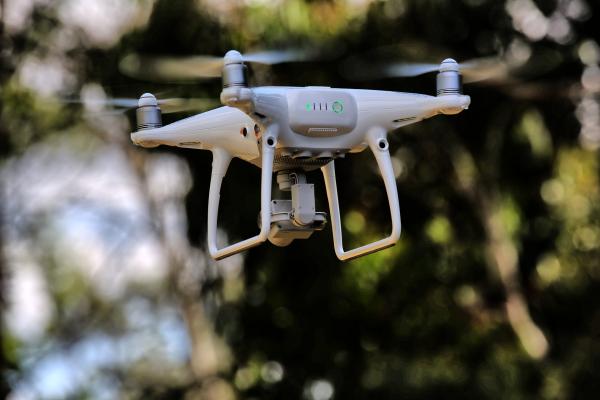In an effort to take a bite out of the healthcare market and distinguish itself further from online retail giant Amazon, whose recent partnership with Berkshire Hathaway and JPMorgan Chase & Co threatens to dominate the space, the United Parcel Service Inc (UPS) teamed up with Matternet to launch the first U.S. routine commercial drone delivery service. The inaugural flight will carry lab specimens from clinics across the WakeMed Hospital campus to a central laboratory for analysis in Raleigh, N.C. What normally takes a half hour by courier is expected to be a three minute journey by drone. If all goes well and continues to with the WakeMed project, then this initial step will be a necessary leap forward toward achieving the ultimate goal of becoming the top contender for national medical delivery services.
Right now the prospect is in its early stages and being pitched as a way to reduce healthcare costs through potentially faster delivery and turnaround of urgent testing and inevitable consolidation of laboratory sites (to learn more, read here). The current test route requires a visual pathway, the aim down the line once the process is perfected would be a fully independent, automated, remotely supervised system. Matternet and UPS hope to get a waiver from the U.S. Federal Aviation Administration that would permit longer flights that don’t require a pilot on-site or a route entirely within his or her line of sight.
UPS has a number of home health projects underway as well. Their vaccine project, set to go later this year, intends on dispatching nurses to patient homes for vaccine administration. The company has invested wisely and has the necessary infrastructure to perform logistically. You see, transport of medical materials - albeit medications to lab samples - requires proper and varying temperatures in controlled environments, avoidance of sun exposure in some cases to tight regulatory compliance for quality control measures. The litany is long in ensuring blood specimen accuracy without contamination during transport or not degrading medical contents, for example, and currently even Amazon is using UPS or FedEx for medical deliveries of its recently billion dollar purchase PillPack.
I included unmanned aerial systems, aka drones, in my Top 8 Med, Tech Advances of 2017. Plus, predictions for future for many reasons. Their capacity to deliver life-saving equipment or medications to remote areas is replete with fascinating, even unlimited potential. A research letter published in the Journal of the American Medical Association (JAMA) by a Swedish team explored the possibilities with out-of-hospital cardiac arrests (OHCA) in Time to Delivery of an Automated External Defibrillator (AED) Using a Drone for Simulated Out-of-Hospital Cardiac Arrests vs Emergency Medical Services. Their findings after comparing data of GPS-enabled drones to actual ambulance response times to areas without medical access demonstrated a median reduction in response time of 16 minutes and 39 seconds. Granted, these were not real-time scenarios. But, what if, after more thorough and comprehensive investigations, they could be?
OHCAs have a very poor prognosis, time to treatment is literally a matter of life or death and permanent disability. Early and swift intervention with an automated external defibrillator (AED) amidst sudden OHCA during bystander cardiopulmonary resuscitation (CPR) saves lives—in fact, doubles the likelihood of survival. But there are problems including: cost, availability and high variability of place and time of OHCA occurrence, and the presence and willingness of bystander intervention.
Given this is all computer generated data, much more needs to be studied in terms of weather challenges, ability to integrate with 911 dispatch centers and survival with EMS versus bystander intervention, to name a few. But, this along with possible drug delivery of EpiPens or on the battlefield for supplies like wound care, for example, could be a whole new avenue for reducing barriers to access. When done responsibly and in a targeted manner, refining the apparent issues could hold great promise.
Delivery-focused technology is a boon for healthcare. As long as the critical elements are in place and pristinely executed to guarantee the integrity of specimens and medications, drones as an adjunct to care could enhance its quality.




